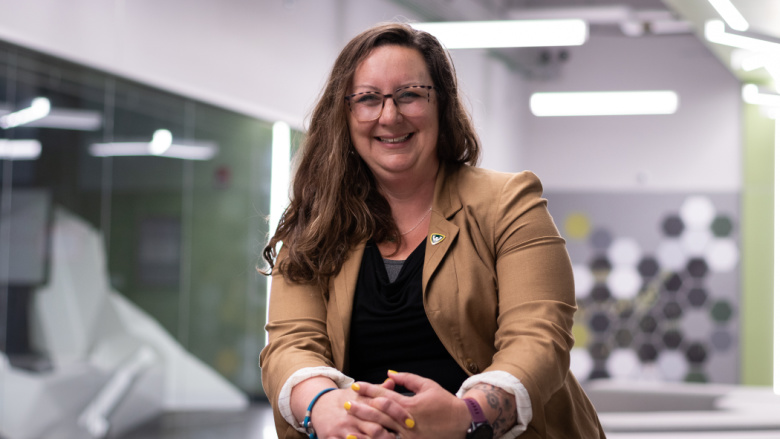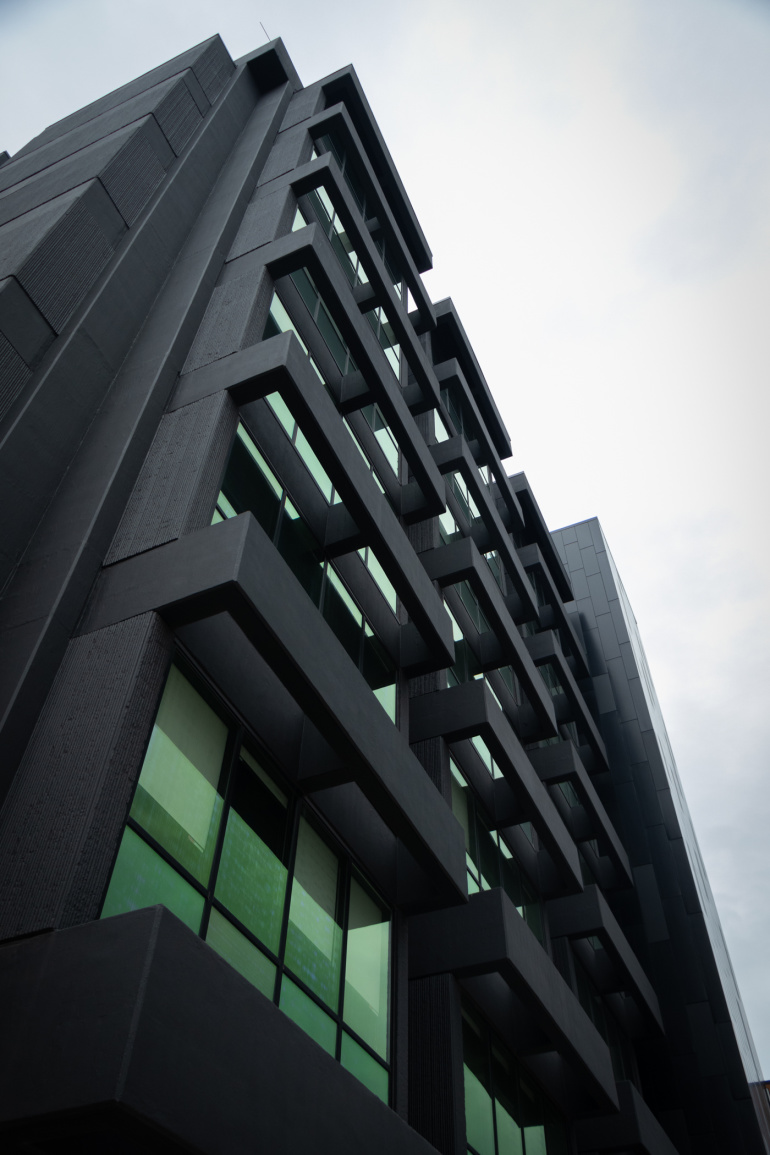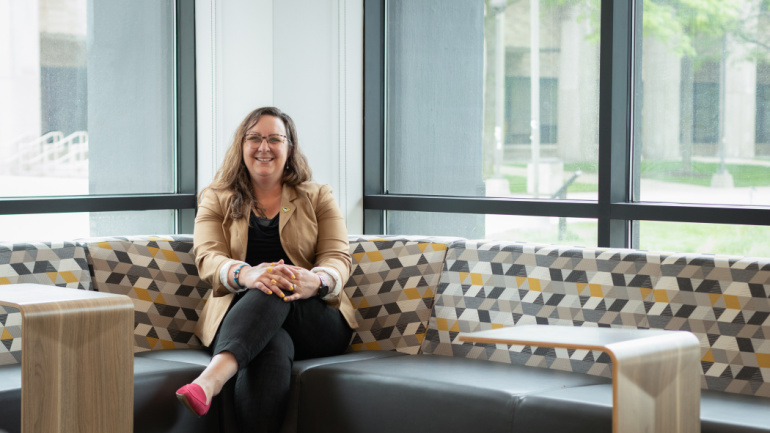
Ashley Flintoff was trying to think of five words or less to describe herself as she filled out an application for Crain’s 2022 Notable Women in Construction, Architecture and Design after being nominated by a co-worker.
Flintoff jokingly wrote “community centered collaboration wizard” and had a laugh before deciding to actually put it on her application.
Joking or not, the description is an accurate way to describe Flintoff’s work as director of planning and space management for Wayne University, and Crain’s agreed by recognizing her as one of this year’s honorees.
“How do you describe yourself in five words? It’s actually really hard,” Flintoff said. “I threw out the word ‘wizard’ and thought, What do I have to lose? I didn’t think Crain’s was going to pick me — but it works because it’s really about finding ways to create things out of seemingly nothing, which is magic. I might need to turn it into a T-shirt or something.”
And during her nine years on the job, Flintoff has been able to do some magical things, one notably being the renovation of Wayne State’s STEM Innovation Learning Center, where she took a once-outdated building and turned it into an innovative learning space.

“The STEM building is something that I'm very proud of,” she said. “The contractors during the renovation would laugh because I’d come in and do little happy dances every time they’d put up a sheet of drywall. They didn’t understand the amount of work that we had to do to get that project from an idea to being funded and then actually built.
“The minute we opened the doors, students flooded in,” Flintoff continued. “Every time I’ve gone through that building, it’s packed, students are using it and they love it. That’s huge because it means that we created spaces where students feel welcome and where they feel like they belong.”
One of the things Flintoff enjoys about working at Wayne State is that she gets to see how people use the final product. In her previous jobs, she would interact with the customer during building or project construction but would move on to the next project once completed.
“The best thing for me is being able to see how the projects that I work on impact people,” Flintoff said. “That’s something that’s really unique about the role that I have and the work that I get to do. The fact that we can create spaces that people want to be in and that actually helps them or enhances their experience on campus — that, to me, is the biggest thing.”
Flintoff has shepherded a number of projects on Wayne State’s campus and will continue to do so as part of the university’s 2030 Campus Master Plan, which she helped organize.
“The plan is a framework to guide the decision-making for the university around the physical environment,” Flintoff said of the plan, which was approved by the Board of Governors in 2019. “It’s broad and sets out strategies. Rather than listing projects we want to do, it’s the long-term strategic vision of why we want to do these projects. We tried to create a framework that was flexible and agile and that could adjust and adapt to whatever the university ran into.
“We did a ton of community engagement,” Flintoff continued, “and that’s something that set the process apart from master plans other institutions have done. We talked to as many people as we could. It’s set up a really great foundation for the university to be able to think about how we want to consider our physical environment.”

One of the biggest projects Flintoff has taken on is the renovation of State Hall, which began in May 2022 and is scheduled to be completed in fall 2023.
“That’s going to be a $70 million renovation of our largest classroom building,” she said. “We’re not doing a full gut because we’re not taking out every single wall, but we’re replacing windows and replacing all the HVAC systems. We’re adding power so it won’t be just an outlet in the front of the room and one in the back; there’ll be power everywhere. It’s setting the stage for the types of classroom spaces that Wayne State wants to provide for students and faculty. It’s putting in AV and technology so the rooms can be hybrid. It’s putting in furniture that is comfortable, but also flexible and movable so that you can have an active learning class or you can have a traditional class. It’s having space that can adjust or adapt.”
Flintoff has had to adapt to a number of obstacles in recent years, including the COVID-19 pandemic, supply chain issues and flooding. One of the ways she keeps a solid work-life balance is by renovating her 1914 Victorian house in the Woodbridge neighborhood near campus.
“We’ve done so much to our house; you name it, we’ve probably done it, but it’s amazing. I love it,” she said. “It’s really rewarding to be able to envision a space and then be able to turn it into what you want.”
She also enjoys doing weekly sailing races as a member of the Detroit Yacht Club.
“We love to sail. We’re not serious racers; we just do fun races,” Flintoff said. “It’s really something I do for me. It’s almost therapy.”